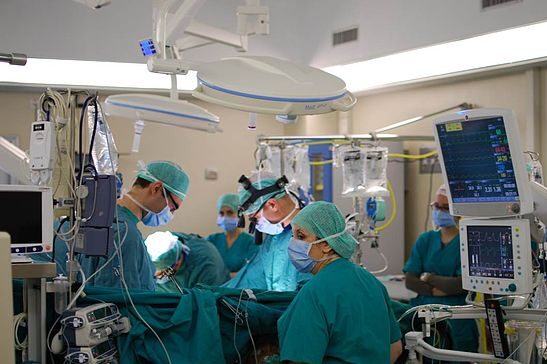
Scotland the first country to outlaw harmful anaesthetic.
Because of the threat it poses to the environment, Scotland has become the first nation in the world to ban the use of the anaesthetic desflurane in its hospitals.
NHS information proposes the gas, used to keep individuals oblivious during medical procedure, has an unnatural weather change potential multiple times more prominent than carbon dioxide.
From its peak use in 2017, its prohibition in Scotland would reduce emissions to the level needed to power 1,700 homes annually.
Hospitals in the UK have already reduced.
More than 40 hospital trusts in England and a few hospitals in Wales have stopped using it in recent years.
Similar to Scotland’s ban, NHS England’s will go into effect in 2024 and prohibits its use except in exceptional circumstances.
Forbidding it across NHS clinics in Britain would slice destructive emanations comparable to those brought about by fuelling 11,000 homes consistently, as per NHS examination of desflurane use in 2020.
In the coming years, similar actions are likely to be taken by other nations, including many in Europe.
Dr. Kenneth Barker, an anaesthetist and clinical lead for Scotland’s national green theatres program, said he was shocked to learn that the anaesthetic drug he had been using for more than a decade for many routine and major surgeries was so bad for the environment.
“I realised in 2017 that the amount of desflurane we used in a typical day’s work as an anaesthetist resulted in emissions equivalent to me driving 670 miles that day,” he said.
“I decided to stop using it straight away and many fellow anaesthetists have got on board.
“When you are faced with something as obvious as this and with the significance it has to the environment – I am very glad we have got to this stage.”
Sevoflurane, which has a potential to cause 130 times as much global warming as carbon dioxide, is one of the safest and most effective anaesthetic gases. Other non-gaseous anaesthetics and more energy-efficient equipment are also common alternatives.
Scottish Health and Social Care Secretary, Humza Yousaf, said: “Programmes like this are key to our transition to become a net-zero health service, whilst ensuring patient safety remains at the heart of every clinical decision.
Meanwhile. Dr Helgi Johannsson, vice president of the Royal College of Anaesthetists said: “More and more anaesthetists across the UK have become aware of the sheer extent of the damage the gas can cause to the environment and have chosen to stop using it – and I am proud of that.”
But he warns it is only the start and just “a drop in the ocean of the NHS carbon footprint”.
He explained: “The NHS is a really carbon-intensive industry. We need to concentrate on all the other major things that can make a difference too – such as tackling old hospital buildings that are difficult to heat and reducing the journeys patients take.”
The NHS’s overall carbon footprint is about 2-5% caused by anaesthetic gases, and efforts are being made to address other medical gases like nitrous oxide.
The net-zero strategy of NHS England examines the environmental impact of the NHS’s supply of medicines and equipment as well as more eco-friendly vehicles and heating and lighting systems.
——————————————————————————
At Natural World Fund, we are passionate about stopping the decline in our wildlife.
The declines in our wildlife is shocking and frightening. Without much more support, many of the animals we know and love will continue in their declines towards extinction.
When you help to restore a patch of degraded land through rewilding to forests, meadows, or wetlands, you have a massive impact on the biodiversity at a local level. You give animals a home and food that they otherwise would not have had, and it has a positive snowball effect for the food chain.
We are convinced that this is much better for the UK than growing lots of fast-growing coniferous trees, solely to remove carbon, that don’t actually help our animals to thrive.
This is why we stand for restoring nature in the UK through responsible rewilding. For us, it is the right thing to do. Let’s do what’s right for nature!
Support our work today at https://naturalworldfund.com/ and join in the solution!

